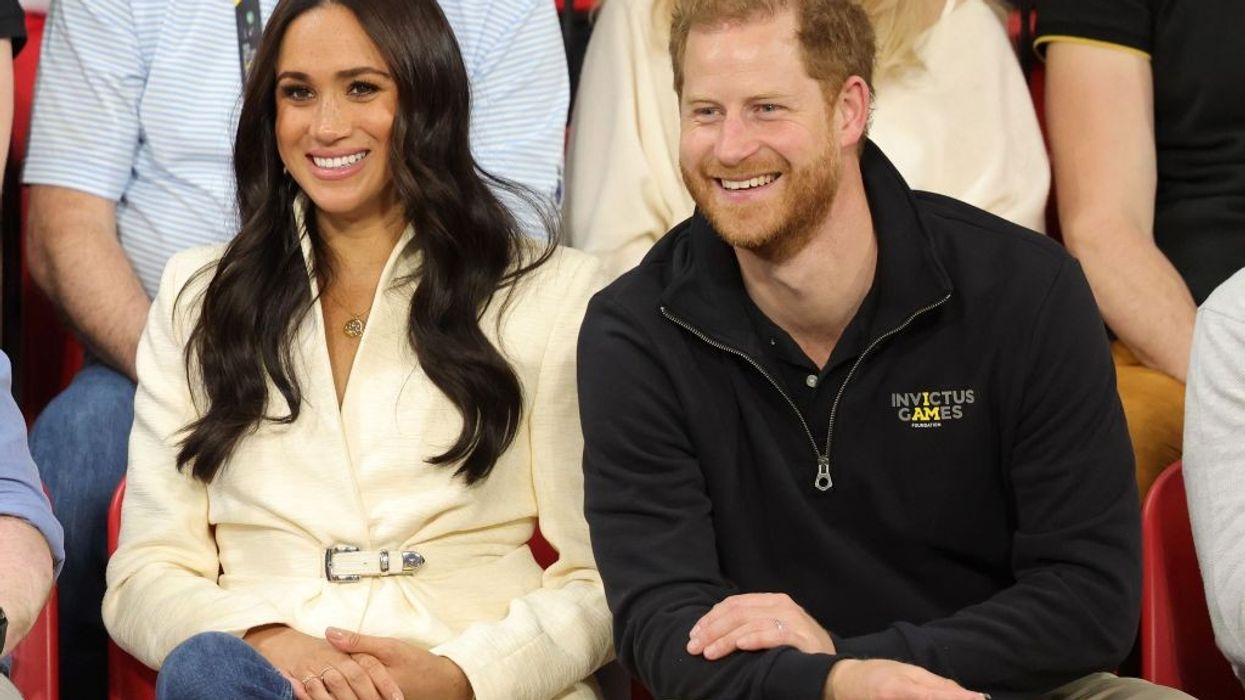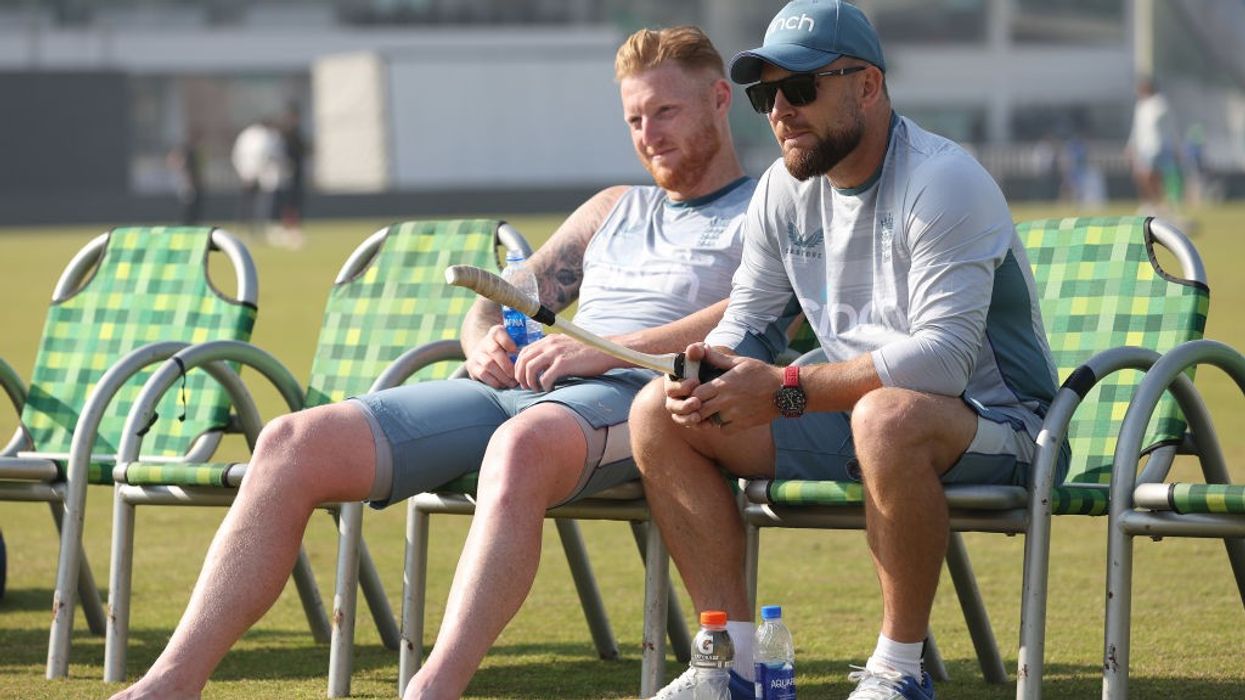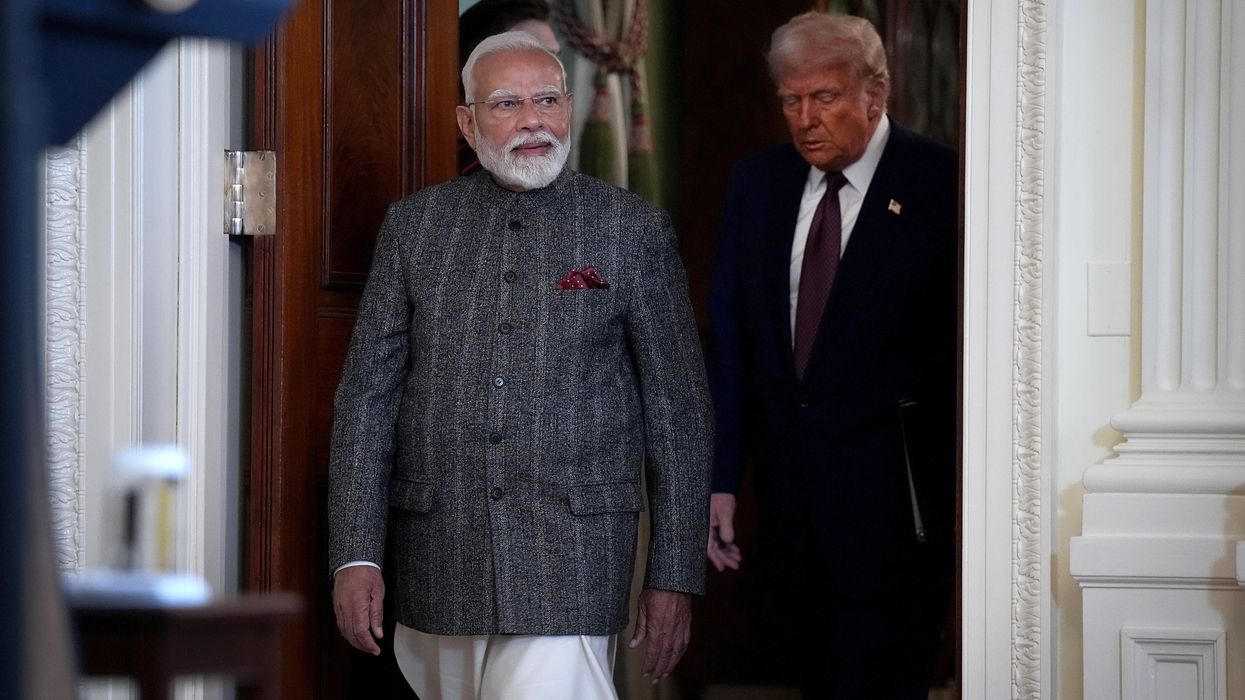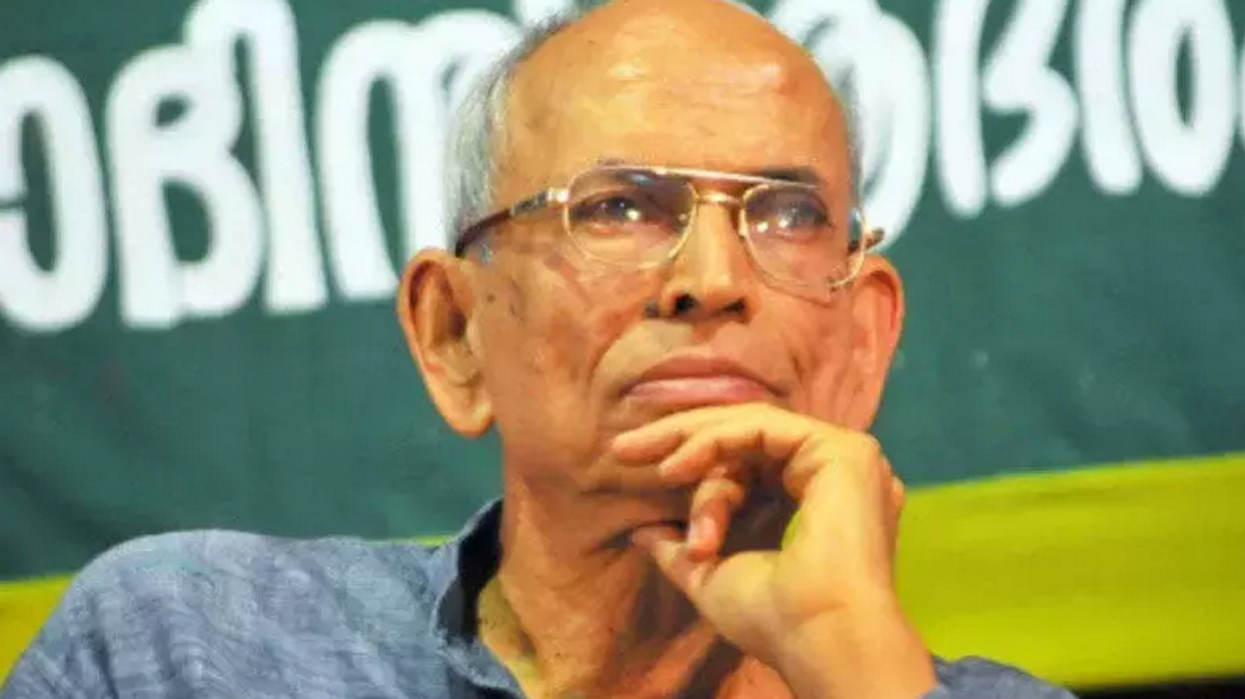ON a rare visit from California, the couple watched the queen's birthday parade, the Trooping the Colour, from a building overlooking the parade ground, a short distance from Buckingham Palace.
The Daily Mail and The Sun tabloids published grainy photographs of Meghan, 40, wearing a broad-rimmed straw hat with a huge ribbon and bateau-neckline dress.
The couple were shown jokingly shushing the children in the royal party.
Meghan, an American former television actress, was seen chatting to the three young children of Harry's cousin, Olympic medal-winning showjumper Zara Tindall.
Harry, 37, a former British army captain, was pictured wearing a dark suit, rather than the ornate military uniform worn for the occasion by his brother William and father Charles.
He was also shown talking to Prince Edward and the Duke of Kent, the Queen's cousin, who accompanied the monarch on the Buckingham Palace balcony as troops saluted below.
The Sun wrote that Harry and Meghan "took a backseat" at the event.
Pictures did not show the couple's young children Lilibet, who turns one on Saturday and three-year-old brother Archie, with their parents shielding them from photographers.
While they were only semi-visible, Harry and Meghan were watching the parade in the same room as other senior royals not involved in the ceremony.
Those present included William's wife Kate Middleton and her three children as well as Harry and William's cousins Eugenie and Beatrice, the daughters of disgraced Prince Andrew.
Lilibet meeting?
Harry and Meghan are likely to attend a Service of Thanksgiving at St Paul's Cathedral on Friday (3), their biographer Omid Scobie told reporters last week.
The Times reported that the queen could for the first time meet her great-grand-daughter Lilibet, whose name is her childhood nickname, on her first birthday.
Lilibet has never met the Queen or her grandfather, Prince Charles, it wrote.
Prince Andrew, the Queen's middle son whose reputation has been tarnished by sex claims, did not appear at the Jubilee events.
He settled a US civil case for sexual assault earlier this year after being removed from royal duties.
The queen elected to only have "working royals" on the balcony, excluding Harry, Meghan and Andrew.
The couple met the queen in at Windsor Castle on a recent private visit before the latest edition of Harry's Invictus Games for disabled veterans in the Netherlands.
After a prolonged absence, an opinion poll published by YouGov this week found their popularity has plunged to record lows.
Some 58 per cent view Harry negatively and 63 per cent viewing Meghan negatively.
The couple, who married in 2018 and were hailed as the modern face of the monarchy, gave up frontline royal duties and left the UK to live in California in March 2020 in a move dubbed "Megxit".
They later gave an explosive interview to US television's Oprah Winfrey, where both accused unnamed royals of racism.
Harry also claimed his father and brother felt "trapped" by the conventions of royal life.
The couple also complained over the removal of Harry's government-funded personal security, which he is currently contesting in court.
Harry and Meghan have since signed lucrative deals with streaming giants Netflix and Spotify, among other tie-ups with publishers and motivational speaking.
Harry is due to publish his memoirs later this year, with the palace braced for further revelations.
(AFP)













